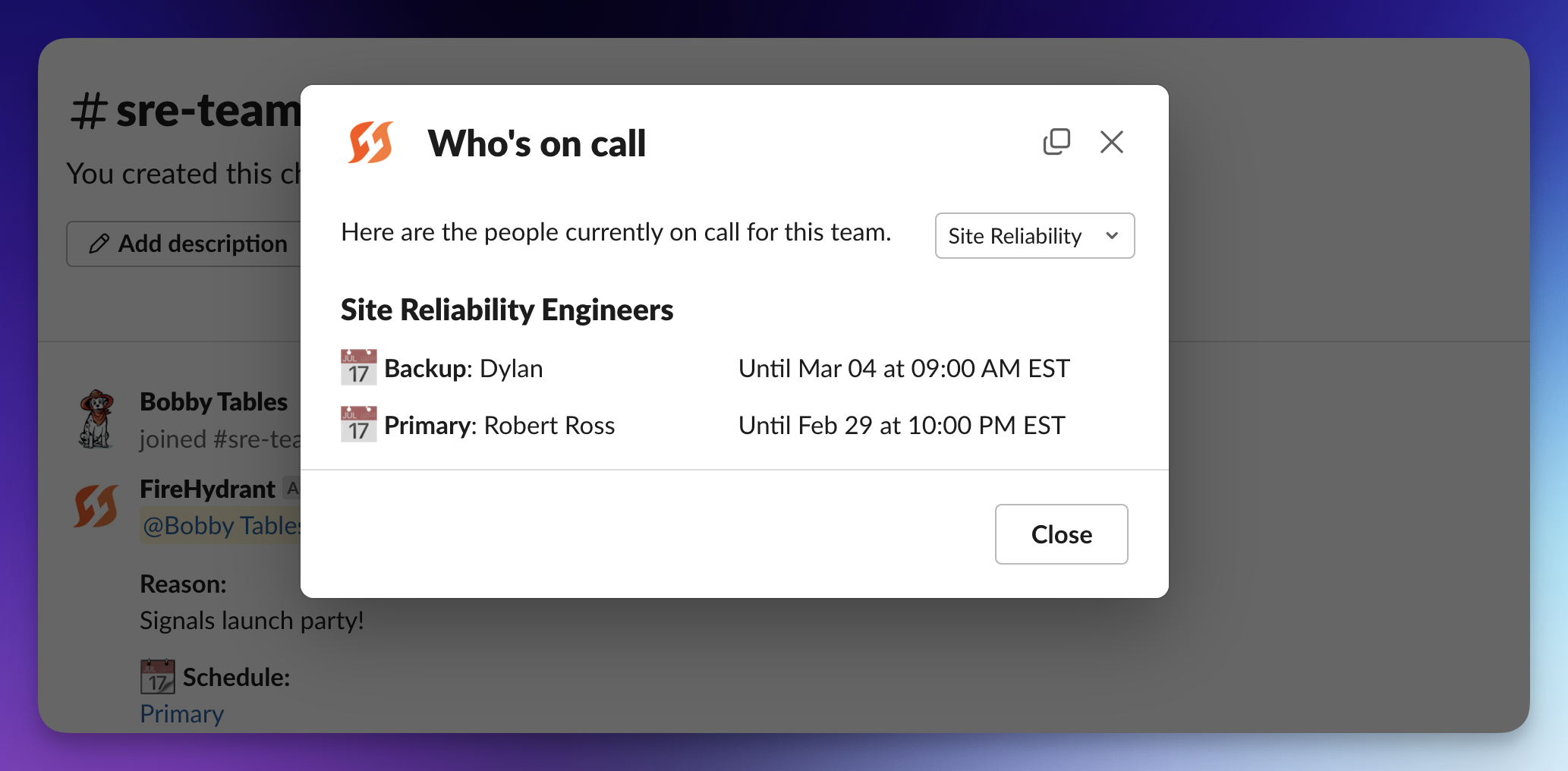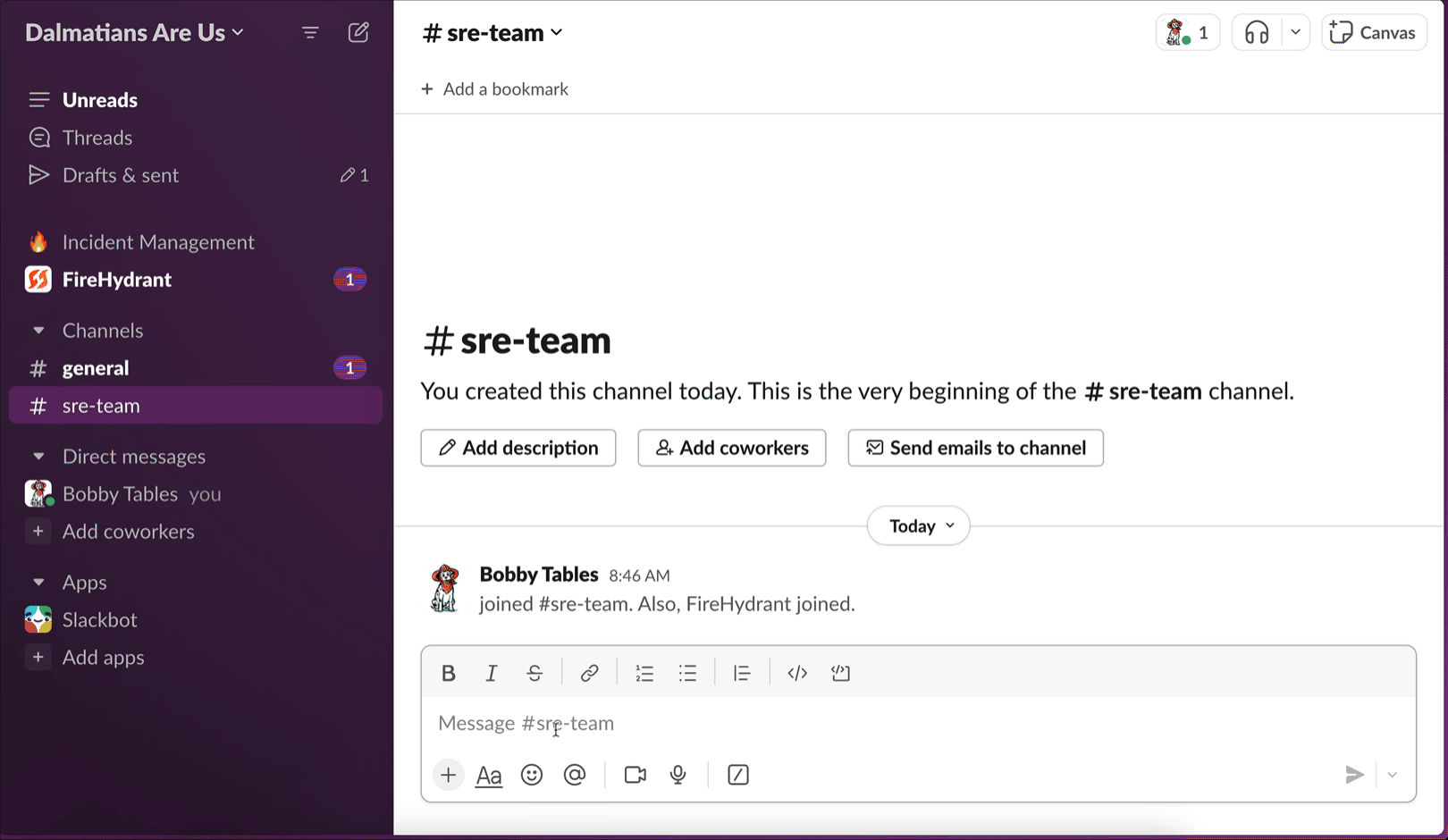Finally: alerting and on-call scheduling for how you actually work
Introducing alerting and on-call scheduling for modern engineering teams. Get fair pricing, team-based controls, less noise, and flexible scheduling from the team that brought you powerful, end-to-end incident management.

By Robert Ross on 2/29/2024

TL;DR You deserve a better alerting and on-call tool. So we built Signals.
In our early days, we often used the tagline, “You just got paged. Now what?” It encapsulated how FireHydrant solved for all of the messy bits that come after your alert is fired, from incident declaration all the way through to retrospective.
At the time, we saw alerting and on-call scheduling as a solved problem. But over the last several years, the way we worked changed: service ownership was popularized, data sources proliferated, remote and distributed work became commonplace, and leaders were asked to take hard looks at their budgets. And yet… alerting and on-call scheduling tools pretty much stayed the same.
It’s time for a change. Today, we’re releasing Signals, a modern, fairly-priced alerting and on-call scheduling tool that natively works with FireHydrant’s full incident management suite. Signals is designed to give you more control, power, and flexibility while also freeing you from the annoying workarounds and administrative burdens that most legacy tools require. Let’s take a closer look.
A tool truly built for teams

The actual architecture behind tools like PagerDuty puts services at the center. And that made sense 10-15 years ago when they were designed. But with Signals, we’ve taken the opposite approach and put teams at the center. You can manage your own on-call schedule and escalation policy, create your own alert rules, and subscribe only to the events that matter to you.
Schedules that fit real life

Being on-call is stressful enough. Setting up schedules, making adjustments, and getting coverage shouldn’t add to the stress. And yet, that’s kind of what we’ve all come to accept. So we changed that, too. You can set up exact hand-off and working hours for any schedule, and making edits is as simple as a Slack command.
Less noise. More signal. No, seriously.

This is for those of you who wish you could just force-quit your entire PagerDuty instance and start over. Signals lets you ingest any data and live-check rules as you write them to make sure you won’t miss alerts that are important to your team. We’ve decoupled events, alerts, and incidents so that you have far less noise and only kick off an incident when there actually is one.
Priced for what you use — and nothing more
We’ve always been puzzled by why alerting is so dang expensive. When we did the math on how to price it, the results were pretty clear: we should just charge people for the alerts they use. That eliminates the mental gymnastics of figuring out who’ll need a license when something goes wrong. Check out the pricing calculator to see what your bill might look like.
We love Signals, and we really hope you do, too. Thanks to the phenomenal partnership of our design partners and beta customers (we’re talking about folks at Snyk, Greenlight, Auditboard, Shipt, and more), Signals is truly aligned with how modern teams work. And there are already dozens of teams using it in their critical infrastructure. Learn more about Signals — or if you're ready to experience it live, give us a shout.
See FireHydrant in action
See how service catalog, incident management, and incident communications come together in a live demo.
Get a demo